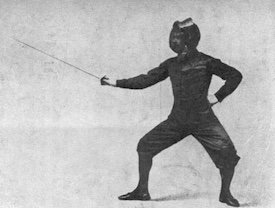I thought we are talking about biases, when someone is testing audio equipment, not deliberately killing people.
We are talking about biases. Do you think biases only have an effect when “
testing audio equipment” but not other far more critical situations? If, as you assert, it’s possible to “
just focus” and “
switch the bias out” then all the pilots who’ve killed themselves and their passengers due to the effect of biases must have done so because they did not “
just focus” and “
switch the bias out”. Therefore, you’re claiming at the very least that they’ve been grossly negligent and at worst that they’ve deliberately killed thousands of people. Or, are you claiming that only audiophiles can consciously “
switch the bias out”, another supernatural audiophile ability along with hearing what’s inaudible?
The auditory evaluation happens either way, but your mental state is different.
Yes it is. I find ABXs to be tedious/boring these days but evaluating audio equipment for potential purchase to be more stressful, just determining if I can sense a difference is a far simpler and less stressful process than mentally analysing and then evaluating differences. As stress can affect the outcome, your assertion would be an argument in favour of ABX rather than against, at least for some.
There is no realworld benefit for an end-user to do an ABX test (unless to win competitions, which is stressful anyway). He isn't gaining anything.
Actually, the exact opposite is true! There is a great deal of “
real world benefit” and the end-user has a great deal to gain. In fact, I highly recommend it to all consumers serious about their listening experience and it is/should be mandatory for student music/sound engineers. The obvious benefit is that it teaches a listener what they’re actually hearing as opposed to what they believe they’re hearing (due to biases), which is surprisingly different in many instances. For this reason, one could argue that anyone claiming to be a serious listener/audiophile is not actually very serious if they don’t perform a significant number of ABXs/DBTs!
Long listening sessions should make him familiar with the sounds.
While you state your belief that blind testing is better, you keep presenting exactly the same false arguments invented by audiophile reviewers in the 1980’s in order to discredit DBTs, it’s these arguments I’m refuting: The argument is false because familiarisation is a requirement of DBTs/ABXs, in fact there is a section dedicated to it, section 4.1 “Familiarisation and Training Phase” states: “
Prior to formal grading, the test subjects must be allowed to become thoroughly familiar with the test facilities, the test environment, … Subjects should also become thoroughly familiar with the artefacts under study. For the most sensitive tests they should be exposed to all the material they will be grading later …” - emphasis mine.
G






















 ). Here's an article with some examples:
). Here's an article with some examples: